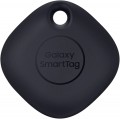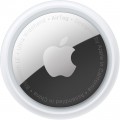Functions
—
Shutdown fuel/power supply. Functionality to remotely stop a car if it is stolen or the vehicle is moving in an unauthorized manner. The emergency stop option is implemented using a special relay, which is pre-installed into the vehicle electronics system. To stop the fuel/power supply, an SMS with a special command is sent to the tracker. Also, some navigator models allow you to use the emergency stop option using a special software platform (application for PCs, tablets or smartphones). GPS trackers with a fuel/power cut-off function are considered as an additional security system.
—
Self-diagnosis. Built-in program for checking the functionality of the tracker. By periodically running self-diagnosis, the customer can monitor the status of the device and take timely corrective action if any problems are detected.
-
Bluetooth Smart. Supports authorization based on Bluetooth Smart technology. This technology allows the owner’s smartphone to be used as a contactless radio tag to disarm the device. Other functions associated with such a “tag” may also be provided; they should be clarified separately. The convenience of Bluetooth Smart is that the customer does not need to carry a separate key fob - a smartphone is enough. However, before purchasing, it doesn’t hurt to check whether a particular smartphone will be compatible with this function.
...>
— Motion sensor. Built-in sensor that tracks small (from a few centimeters) movements of the tracker. Note that the operating principle of this function is not to determine coordinates from a satellite (no system provides sufficient accuracy for this), but to use inertial sensors based on accelerometers/gyroscopes. The movement sensor allows you to track attempts to remove the tracker from the car - when it is triggered, the device notifies the owner in the selected way.
— Tilt sensor. A sensor that tracks the tilt of the device. This sensor is triggered, in particular, when trying to load the car onto a tow truck or jack it up - in such cases, a notification is sent to the owner in one way or another. This helps prevent the wheels from being removed or the entire vehicle being stolen.
— Shock sensor. Sensor that reacts to strong impacts and shocks; When the sensor is triggered, the tracker sends a notification to the customer using the selected method. This function can be used both as an element of the anti-theft system (warning of an attempt to break into the interior or of broken glass), and as an accident alarm - for example, if the car is hit in a parking lot.
— Recording the history of movements. The ability to keep a history of movements and track events that occurred with an object over the past period. In practice, such a function is implemented through an application or web interface provided by the GPS tracker. Usually this is a card with marked routes, points and timestamps where the tracker has been.
- Record when sound is detected. A feature that allows the device to begin recording location data only when sound vibrations occur in the environment. At a minimum, this helps reduce the power consumption of the GPS tracker - until sounds are detected, it will remain in standby mode and consume a minimum of precious energy.
— Remote on/off of the tracker. Functionality to remotely turn on and off the GPS tracker - to determine location upon customer request. The function may be useful when the tracker is used periodically or in certain situations.
— SOS panic button. The tracker has a button in its design to immediately call for help in emergency situations. Pressing the SOS button activates mechanisms to send a distress signal and location information to a pre-entered phone number, email or monitoring center. GPS trackers with an SOS alarm function are used in personal models and beacons for vehicles (see “Type”).
— Built-in microphone. This function requires the presence of a microphone that can be turned on remotely and listen to the environment around the tracker. Typically, to use this function, you need to call the tracker's phone number - the device will automatically answer the call and turn on the microphone. In this way, you can, for example, check the situation in the cabin after the shock sensor is triggered.
— Sleep mode. An operating mode in which the device reduces its activity in order to save energy and extend battery life. Sleep mode is often used in situations where constant location tracking is not required. Output from it can be implemented at predetermined activity intervals or through auto-switching on when certain events are detected.Fastening
—
Without fastening. Devices that do not provide rigid fixation. Such a tracker can, for example, be put in the boot / body along with the cargo, hidden under the seat trim, among the little things in the glove compartment, etc. In addition, such models can be used as portable beacons — for example, during a long hike.
—
Magnetic. Fastening due to a permanent magnet built into the body of the tracker. This method allows you to easily and quickly install the device on metal magnetic surfaces — for example, the body or boot of a car. Note that a magnetic mount can be provided as an option, in the form of a replaceable cover; similar models are also included in this category.
—
Bolt. Fixed fastening with bolts. Such an installation requires additional work to prepare the seat, but the installed device is not so easy to remove. In addition, bolt fastening is suitable even for the largest and most massive models, with a powerful hardware and an abundance of functions; and you can power the tracker without much difficulty from the on-board network.
Dust-, waterproof
The degree
of protection against dust and moisture provided in the tracker. Traditionally denoted by two digits according to the IP standard, where the first digit indicates protection against dust and foreign objects, the second — against liquids. Detailed decoding of numbers can be found in special tables, but here we note that the larger the number, the higher the level of protection. The maximum rating found in trackers is IP68, full dust tightness and the ability to dive under water to a depth of at least 1 m.
It makes sense to pay attention to this indicator, first of all, if the tracker is planned to be used outside the passenger compartment of a car — for example, in an open body, or on motor vehicles.

